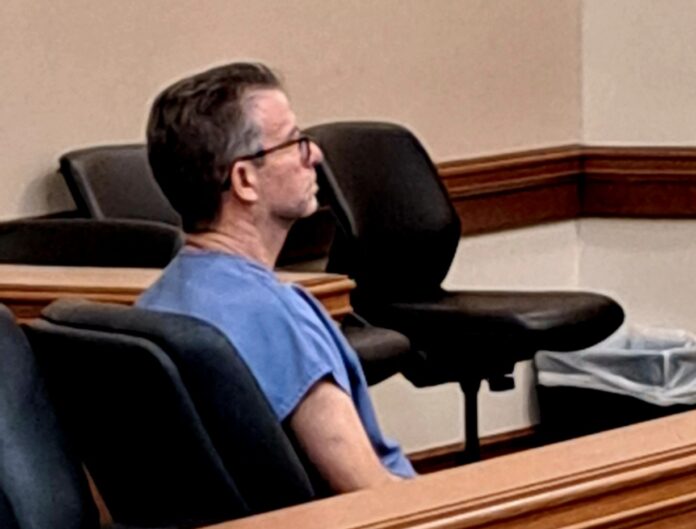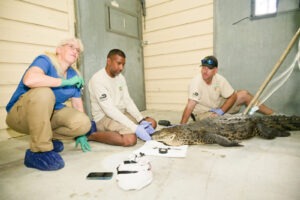
A grand jury last week indicted Lloyd Preston Brewer, 57, who is accused of fatally shooting Garrett Hughes, 21, outside a Key West bar on Feb. 13, according to court documents.
He was indicted on three felony charges: first-degree murder, aggravated assault with a deadly weapon and violation of a concealed firearm permit, meaning a grand jury decided there is enough evidence against Brewer to warrant a trial on those charges. (More on indictments and the grand jury in a moment).
Brewer has been in jail since the Feb. 13 shooting in the parking lot behind Conch Town Liquor & Bar, and the victim’s family is requesting he stay there until trial. A pre-trial hearing currently scheduled for July 6 could include a request that Brewer be released on bond until the trial begins.
Brewer shot Hughes upon seeing the victim, who was drunk, urinating on the side of a neighboring building behind Conch Town. In interviews with police immediately after the shooting, Brewer said that Hughes had come at him, and that the shooting was in self-defense. But prosecutors have said the security footage of the incident does not corroborate a self-defense argument.
A memo filed by the Hughes’ family’s attorney, Stuart Grossman, on June 8 asked the court to deny any bond requests and keep Brewer in jail until trial, given his financial means, his family’s out-of-state real estate holdings and his ownership of a boat, all of which “could be used to facilitate flight,” states the memo filed on behalf of the Hughes family.
The memo also details Brewer’s past criminal history, which includes a 2021 domestic battery incident in which Brewer allegedly punched his girlfriend in the face, then retrieved a gun from the kitchen pantry, but did not fire it. The criminal history also includes Brewer’s 2005 arrest in Georgia for possession of methamphetamine and possession of a gun by someone under a temporary restraining order, the memo details.
“The facts of this case already show that Brewer is a danger to the community. The above criminal history further reaffirms that he is a danger,” the memo states.
Now back to the indictment — and what IS a grand jury, anyway?
For anyone who even surfs past national news, the terms “indictment” and “grand jury” have become inescapable in recent weeks. So, what IS an indictment and what does it mean? And what is the grand jury that decides indictments?
Maria Cramer summarizes it well in a June 8 New York Times article, “Here’s how indictments work in the United States’ legal system”:
“An indictment, whether it is handed up in federal or state court, is a formal accusation — not a conviction — and it is among the first moves a prosecutor can make to bring a case to trial. When a person is indicted in a criminal court in the United States, it means that a grand jury composed of residents chosen at random believed there was enough evidence to charge that person with a crime. Such panels, generally convened by judges at the request of prosecutors, meet for weeks, and can hear evidence in a variety of cases. The judge is not present during grand jury proceedings after the jurors are chosen, and jurors are able to ask the witnesses questions.
Unlike a criminal trial, where a jury has to reach a unanimous verdict, a grand jury can issue an indictment with a simple majority.
Grand jurors hear evidence and testimony only from prosecutors and the witnesses they choose to present. They do not hear from the defense or usually from the person accused …. That one-sided arrangement often leads defense lawyers to minimize indictments and argue that prosecutors can easily persuade jurors to indict.”
The members of a grand jury are kept confidential, as are the cases they review.
In the matter of Brewer, a grand jury on June 8 voted to indict him, meaning they believe there’s sufficient evidence to try him for first-degree murder, aggravated assault with a deadly weapon and a violation of a concealed weapon permit for having a gun in a business where alcohol is served and consumed.
As mentioned, in considering whether to indict, the grand jury would not have heard any evidence or arguments from the defense on behalf of Brewer. And members of the grand jury that voted to indict Brewer will not sit on the regular jury that eventually hears the case at trial.
Judge Mark Wilson has tentatively scheduled the trial by jury for July 14 and July 24 in Key West. A pretrial hearing is scheduled for 9 a.m. on July 6.

























